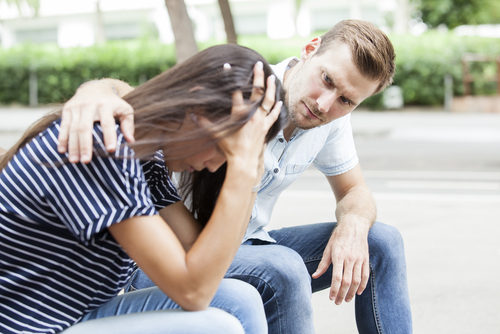The possibility of addiction relapse is an unfortunate reality that every individual struggling with an addiction must face. But not everyone relapses. It is estimated that about half of those treated for an addiction for the first time will remain in recovery without any setbacks.
Of course the individual’s loved ones want to do everything they can to help, but ultimately it is not their responsibility to prevent the individual from relapsing. However, they don’t have to helplessly stand by either. There are ways to help a friend avoid relapse and maintain sobriety.
Follow Up Treatment
Researchers have found that individuals in recovery who continue with their treatment and with follow-up therapy are less likely to relapse. Individuals with addiction don’t ever really get out of treatment. The type of treatment the individual gets after completing a formal treatment program should also be carefully evaluated. Their loved ones should make sure that the follow up treatment is the best approach for them. Relapse prevention interventions could include medications, behavioral interventions, or AA. It all depends on the individual and what works for them. Loved ones must be careful not to push individuals into the kind of treatment that they think will be most effective. Furthermore, the loved ones could offer to take the individual to treatment sessions as another way of supporting them.
Spotting Triggers
A treatment program often involves relapse-prevention training to teach the individual how to deal with temptation and handle stressful situations. It could also include helping the individual spot relapse triggers. Some relapse triggers may be:
- Socializing with people they’ve used drugs or alcohol with in the past
- Certain times of the day or week when they formerly used drugs or alcohol
- Being in a particular place associated with their substance abuse
- Specific stressful or emotional situations
The individual’s loved ones should talk to them about what their triggers could be, and can help the individual avoid them.
What Not to Do
Needless to say, friends and loved ones shouldn’t drink alcohol or use substances in the presence of the recovering addict. This will only increase their chances of relapse, particularly during the early months of treatment.
However, if a relapse should happen, loved ones shouldn’t get frustrated or angry, because for a lot of individuals in recovery, relapse is a part of the recovery process. And relapsing does not mean that treatment is not working. But in case of a relapse, the individual should be encouraged to seek help as soon as possible, so that it is dealt with and their recovery will be long term.
LEAD Recovery Center equips each client to deal with relapse in recovery. Our transitional program is designed to help clients achieve autonomy for a healthy and balanced life, living clean and sober. For more information, call us today at 1-800-380-0012.


